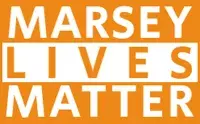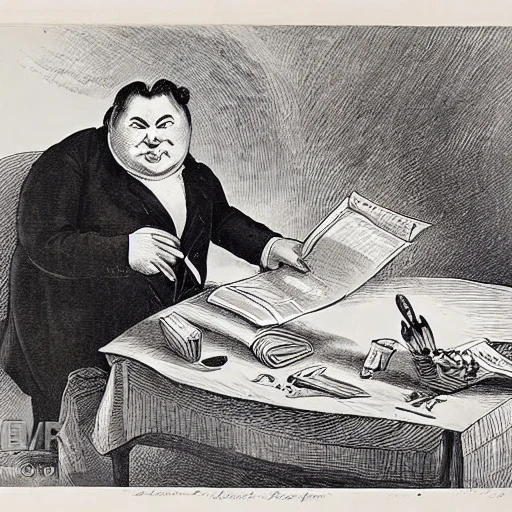- 18
- 25
The big economic story of 2023 was that inflation cooled off. The latest inflation numbers, released Thursday, showed that prices rose 0.3% in December, and were up 3.4% for all of 2023, down from 6.5% in 2022. And while the current inflation rate is still well above the Federal Reserve's target of 2%, it was cut almost in half last year, even as the U.S. economy has continued to grow, and unemployment has stayed below 4%.
Don't expect Americans to celebrate, though. They're still deeply dissatisfied with the economy, in large part because they are unhappy with the fact that even as inflation has come down, overall prices are still almost 20% higher than they were four years ago. In a Morning Consult poll from late November, more than half of those surveyed said they were "very concerned" with inflation. And in a recent Blueprint/YouGov poll, 64% of registered voters said that what they would most like to see improved in the economy was "lower prices."
In other words, even though we have disinflation (a decline in the rate at which prices are rising), what consumers want is deflation: for prices to drop. As Lisa Cook, a member of the Federal Reserve's Board of Governors, put it recently, "They want prices to be back where they were before the pandemic." In fact, consumers want it so badly that according to that Morning Consult poll, 63% of those surveyed said they would prefer that prices go down rather than that personal income go up.
The desire for lower prices is understandable and unsurprising: No one likes paying 20% more for the exact same product or service. But the truth is that if we actually did get economy-wide deflation, the cure would be worse than the disease.
That's because in our current economy, the only thing that could cause a meaningful and widespread drop in prices would be a cratering of demand, of the kind you see during massive economic downturns. If businesses were to stop investing and consumers were to stop spending, companies would probably slash prices in an effort to keep sales up. But we'd also see economic growth plummet, unemployment soar, and wages drop. That would be a bad trade.
Deflation would also likely make the economic downturn worse. When prices are falling, it makes sense to hold off on purchases or investments, since you know that you'll be able to buy or invest at a cheaper price down the road. So falling prices typically exacerbate the problem of weak demand, making it harder for the economy to get out of its recessionary spiral. That's what happened in Japan in the 1990s, when the collapse of a stock-market and real-estate bubble led to chronic deflation and a decade of economic stagnation.
To be fair, there are rare circumstances in which deflation and economic growth can go together. If the value of a country's currency rises sharply, goods and services can become cheaper without dinging economic growth. (Switzerland saw this happen from 2012 to 2016.) And rapid technological growth that dramatically expands a country's productive capacity can also result in lower prices and strong growth.
Neither of those situations, though, is relevant to the American economy today. In fact, since the turn of the 20th century, the only times our economy has seen sustained and meaningful deflation has been during disastrously bad recessions, including the downturn of 1920-1921 and, most obviously, the Great Depression. Between 1930 and 1933, prices dropped by an average of almost 7% a year (which is roughly what we'd need to get prices back to where they were before the pandemic). But that only happened because over that period the U.S. economy shrank by 25%, while unemployment hit 24.9%.
When people say they want lower prices, what they mean is that they want lower prices while their incomes stay the same. But what history tells us is that what we'd get instead is lower prices and higher unemployment, lower wages, and a shrinking economy.
What the economy needs, then, is not deflation. Instead, it needs inflation to stabilize at a manageable rate (which seems to be happening). And it needs real wages and salaries (that is, incomes after inflation) to rise. That's been happening for roughly the past year, with wages and salaries outpacing inflation to the point that according to Arin Dube, an economist at UMass-Amherst, average real wages are now higher than they were before the pandemic.
So far, the drop in inflation and the increase in real incomes hasn't made people feel buoyant about the economy. Some of that is because if we get a raise, we tend to explain it as the result of our own effort and merit, rather than the product of a strong economy and tight labor market. And some of it is because the impact of high inflation lingers long after prices stabilize.
Over time, though, if real wages keep rising, people will eventually adjust, since what really matters is not what something costs, but whether you can afford it. And there is, in any case, no better alternative. Having lower prices across the board sounds great in theory. But it would look very ugly in practice.
!chuds !nooticers another journo banger
- 3
- 26
Originally discovered here https://theathletic.com/5193316/2024/01/11/espn-emmys-fake-names-college-gameday
Basically ESPN made up fake names for extra fake producers so they could get extra emmy trophys to give to on air talent who did not qualify. No one has been fired over this.
- 7
- 20
REPORTER TO HUNTER: “What kind of crack do you normally smoke Mr. Biden?” pic.twitter.com/p9ogA9LHLZ
— Daily Wire (@realDailyWire) January 10, 2024
Kill me pls
- 28
- 53
BREAKING: Jeff Bezos's prized paper, The Washington Post, is losing $100 million a year.
— Leading Report (@LeadingReport) January 9, 2024
- 4
- 36
Can't have shit on the internet these days without a bunch of twinks throwing tantrums, people starting boycotts, and journos writing hit pieces
- 25
- 50
- BimothyX2 : Unfunny, uninteresting and unrelated to drama
- 22
- 31
(Subscription required, bypass using archive site)
Another long day for MSM journos with nothing  important to cover.
important to cover.
The world's wealthiest person
has used LSD, cocaine, ecstasy and psychedelic
mushrooms, often at private parties around the world, where
attendees sign nondisclosure agreements or give up their phones to enter, according to people who have witnessed his drug use and others with knowledge of it.
No matter  what you think
what you think  of Elon, you gotta
of Elon, you gotta  give him credit. This dude became the richest person
give him credit. This dude became the richest person  while hallucinating
while hallucinating  all his ideas AND forced people to sign NDAs around him.
all his ideas AND forced people to sign NDAs around him.
https://en.wikipedia.org/wiki/The_Wolf_of_Wall_Street_(2013_film)
- 4
- 19
Mainstream media has gotten so pathetic it's not even funny anymore.
- 6
- 36
I don't think you appreciate the level of hatred and contempt the average person feels toward you.
— Michael Malice (@michaelmalice) January 4, 2024
But it's still nowhere near enough.
- 19
- 55
- 147
- 165
The AP stealth-edits story to note that Native American tribes used scalping against each other rather than just being a "gruesome practice taken up by white colonists" against Native Americans as the original article stated.https://t.co/RvFlnSxYVF https://t.co/6vQMlWlsF7 pic.twitter.com/47C6jocT28
— Jeryl Bier (@JerylBier) January 3, 2024
Before white supremacy gets its grubby way
AFTER HITLER LITERALLY REWRITES HISTORY
I honestly thought they just had one of those moments where they mixed it up and had a shitty editor. Nope.
- TheOverSeether : better thread here - https://rdrama.net/post/232600/fact-checkers-about-to-fedpost-that
- 11
- 26
Bussy Singal's response: https://jessesingal.substack.com/p/why-would-i-possibly-trust-bill-adair
Fact-checking is failing.
The old way of publishing fact-checks --- putting them on websites and promoting them through social media --- isn't getting them to the people who need them. It's time to reimagine how fact-checkers publish and broadcast their work.
For two decades, fact-checking organizations relied on a dependable model: They published articles on websites. They also tried a variety of other ways to spread the facts --- tweets and TikToks and podcasts and even TV segments. But for the most part, the main way they published their work was on the web.
It worked --- sort of. Fact-checking became a Thing, foundations kicked in money, and some politicians (um, mostly Democrats) became more cautious about what they said and did.
But now, 20 years later, there are big gaps. A study of 2022 coverage by my colleagues in the Duke Reporters' Lab found there are still giant "fact deserts" with little or no political fact-checking. Half the states had no fact-checking organization and, in those that did, the odds of a politician being checked were tiny. State legislators (there are more than 7,000 in the United States) were checked only 77 times.
Another problem is that fact-checks aren't reaching the people who need them the most. Although this hasn't been studied as directly as the location of fact-checkers, it's pretty clear from the research that Republicans distrust political fact-checking.
In the coming year, I predict (okay, I hope) that fact-checkers will reassess their goals and reimagine how they publish their work. It's time to get rid of our old approach and 2024, an election year, is an ideal time.
After I founded PolitiFact in 2007, I often said that our goal wasn't to change people's minds or get politicians to stop lying --- it was simply to inform democracy. In the last few years, I've changed my mind. "Informing democracy" is not enough in an age of rampant lies about elections and public health and climate. Fact-checkers need to be more assertive in getting truthful information to the audience that needs it.
In 2024, they will dream up new ways of getting the facts to the people who need them. Fact-checkers will be bold and think more like marketers trying to push content rather than publishers waiting for the audience to come to a website. They will experiment with new forms that target the people who are misinformed and push the content directly to them.
Another way they will innovate: They'll get tech companies and social media platforms to expand the use of fact-checking data to suppress misinformation. My Duke team helped develop ClaimReview, a tagging system used by most of the world's fact-checkers. Tech companies such as Google use it to identify fact-checks and highlight them in search results and news summaries. But this is just a start. ClaimReview and MediaReview, a sibling tagging system for fact-checks of videos and images, can be used more widely to suppress inaccurate content.
I'm also encouraged about the big infusion of money and energy that will come from Press Forward, the ambitious new venture to fund local journ*lism. The early signs indicate it will be built around regional partnerships, which bodes well for an expansion of fact-checking. I expect the local leaders will make fact-checking a key component of their funding.
I'm not embarrassed to say fact-checking needs a reboot. It's had a great run for the past two decades, but it's time for a fresh approach. I'm hopeful it will get one in 2024.
- 12
- 24
This is CNN. pic.twitter.com/8oeZb5iAw3
— The Post Millennial (@TPostMillennial) January 1, 2024
- 18
- 52
Read more:
— Libby Emmons (@libbyemmons) December 24, 2023
Taylor Lorenz skips Christmas for 4th straight year because of Covid, accuses those who don’t wear masks of ‘social murder of disabled people’https://t.co/d2ZFKn3Z2n












 .
.











 Journos won. The Trust & Safety industrial complex is coming to Substack.
Journos won. The Trust & Safety industrial complex is coming to Substack.









 Elon's Empire
Elon's Empire  was Created
was Created  on Drugs
on Drugs  (MSM slop)
(MSM slop)




 ratio
ratio


.webp?x=8)












